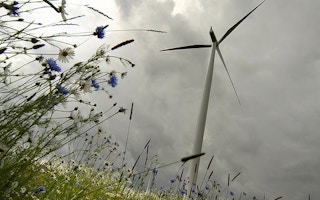Doha, Qatar - The World Energy Council has issued a new report that reveals a difficult road ahead for the global development of stable, affordable and environmentally-sensitive energy systems.
The 2012 World Energy Trilemma report, released at the on-going United Nations climate change summit in oil-rich Qatar, assessed more than 90 countries and concluded that most governments still have not managed to balance the energy trilemma of energy security, social equity and environmental impact mitigation.
It adds that an energy gap is growing as energy systems around the world buckle under significant strain. The report’s Energy Sustainability Index, which ranks countries in terms of their likely ability to provide a secure, affordable, and environmentally-sensitive energy system, named the top 10 performers in 2012.
They are developed countries Sweden, Switzerland, Canada, Norway, Finland, New Zealand, Denmark, Japan, France and Australia, respectively.
WEC executive chair, Joan MacNaughton, noted at the press conference on Monday that these countries are closest to achieving sustainable energy systems as they use larger share of low-carbon energy such as renewable and nuclear as part of their energy mix, thus they have more effective and long-term policies.
The report further noted that if the supply of sustainable energy continues to lag behind rapidly rising demand globally, billions of people could be forced to live without reliable electricity and economic growth could be put in jeopardy.
“Already, 1.3 billion people live without access to electricity. This number could rise if demand continues to jump by as much as 30 percent over the next two decades,” the report warned.
WEC’s report recommended that policymakers develop a strategy that encompasses a mix of different energy sources and technologies. A clear agenda must be set in three key interconnected policy areas:
- Designing coherent and long-term energy policies;
- Enabling market conditions that attract long-term investments; and
- Encouraging initiatives that foster research and development (R&D) in all areas of energy technology.
Industry leaders see these policies as crucial to providing secure, affordable and environmentally sensitive energy for the world’s 7 billon people, said the report.
It cited that Sweden, for instance, has significantly reduced its greenhouse emissions even though its gross domestic product (GDP) is rising, mainly because it has set long-term sustainable energy and climate policies and goals for 2020.
Countries at all stages of development, the report said, still have trouble balancing the trade-offs involved in providing safe, affordable and green energy. Developing countries, in particular, struggle to use cleaner forms of energy as they industrialize, it noted.
The country of Senegal was ranked last or 94th place as only 42 percent of the population has access to electricity. With the country’s high fuel prices, the country also ranks poorly in addressing social equity. Its environmental performance was declared “very weak” due to high carbon emissions from electricity and heat generation as well as low quality of air and water.
Pierre Gadonneix, Chairman of the WEC said governments must develop long-term and stable strategies that are consistent, clear and simple.
“Our energy systems are not sustainable. All countries are experiencing growing difficulties in securing their energy supply as they engage in a cleaner growth pattern to deliver social equity, especially during difficult economic times. Our report makes clear recommendations to help policymakers engage in a much needed dialogue with business to deliver sustainable energy systems, which can support renewed governance on global issues such as climate, safety of energies and trade,” he said.

















